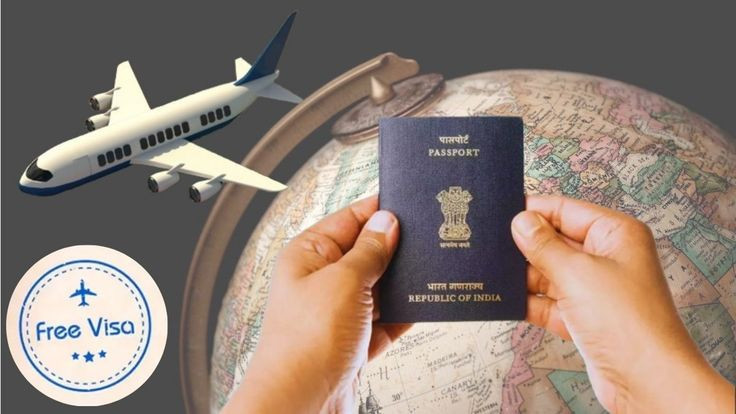views

Ever wondered what it takes to snag an EB2 visa?
It’s one of those things that sounds simple get a fancy degree or be really good at something, and you’re in. But then you start digging, and it’s like unraveling a knot.
The EB2 visa is a U.S. employment-based option for people with advanced degrees or exceptional skills, offering a shot at living and working in the States.
I remember flipping through Cosmopolitan Magazine once, caught up in stories about people chasing big dreams abroad. Those stories hit home real people tackling real challenges.
This guide is for you, whether you’re a professional eyeing a U.S. career or a business owner trying to attract top talent. Let’s break down who qualifies and why it matters.
The EB2 Scene Today
The EB2 visa is buzzing right now. Tech, healthcare, and academia are driving demand, with USCIS reporting processing times of 6 to 12 months in 2024 quicker than the multi-year waits some faced a decade ago.
Why? The U.S. needs skilled workers to fill gaps in industries hit by shortages. But it’s not all smooth sailing. If you’re from a country like India or China, priority date retrogression where visa availability lags can still stall your plans.
I was chatting with a friend who saw a piece on 9figuremedia about how companies are dangling visa sponsorship to lure talent. It makes sense, businesses are getting creative to stay competitive.
Compared to the early 2010s, when EB2 applications faced less scrutiny, today’s process demands tighter documentation. It’s tougher, but the payoff?
A shot at a career in a market hungry for your skills. Are you seeing more employers in your field offering visa support these days?
Diving Into EB2 Eligibility

Let’s get to the nuts and bolts. The EB2 visa splits into two main paths: advanced degree holders and those with exceptional ability.
Each has its own rules, and figuring them out can feel like piecing together a puzzle with half the pieces upside down.
I. Advanced Degree Holders
You need a master’s degree or higher or a bachelor’s plus five years of progressive experience to qualify here. The job you’re applying for has to require that level of education.
Think of a software engineer with a master’s applying for a senior developer role. Sounds simple, right? But if the job could be done by someone with just a bachelor’s, USCIS will push back, no matter how impressive your resume is.
Picture Maria, a civil engineer from Brazil. She’s got a master’s and seven years designing bridges. Her U.S. employer submits a petition for a role that demands a master’s-level engineer.
Her case is solid credentials and job match perfectly. But if the job ad only asked for a bachelor’s, she’d be stuck. It’s a reminder: details matter.
II. Exceptional Ability
This one’s for folks who stand out in their field scientists, artists, business leaders. You need to hit at least three of six criteria, like winning awards, getting coverage in outlets like Coindesk for crypto experts, or earning a top salary.
I heard about a Nigerian data scientist who nailed this with published papers, an AI project, and global recognition. His application wasn’t flawless he had to dig up extra proof but it worked.
Here’s the rub: “exceptional” is subjective. One USCIS officer might love your industry award; another might not care.
Strong evidence, like expert letters or media mentions, is your best bet. Ever wonder how you’d prove you’re exceptional in your field?
III. Labor Certification (PERM)
Most EB2 applicants need a PERM labor certification, where the employer shows no qualified U.S. workers are available. It’s a process ads, interviews, paperwork.
Some skip this with a National Interest Waiver (NIW), but that’s a high bar. Your work has to benefit the U.S. big time, like pioneering a new vaccine.
I read about a researcher who got an NIW for her renewable energy work. No job offer needed, but it took months of prep. It’s a tough call stick with PERM or shoot for NIW?
IV) Comparing the EB2 Paths
So, advanced degree, exceptional ability, or NIW which is your best bet? The advanced degree route is clear-cut if your education and job align, but it’s strict.
Exceptional ability gives you wiggle room but needs more proof and feels chancier. NIW is tempting no job offer, no PERM but you’ve got to sell USCIS on your work’s national impact.
Honestly, I’d lean toward advanced degree if it fits; it’s less of a headache. But if you’re a standout, exceptional ability or NIW could be worth the gamble. Which path sounds like it fits your situation?
What’s on the Horizon for EB2?
The EB2 visa isn’t going anywhere. The U.S. wants skilled workers, especially in STEM, and USCIS is experimenting with digital tools to speed up reviews, maybe cutting wait times by 2026.
But the annual cap of 140,000 employment-based visas means backlogs will linger for some countries. If you’re from, say, Canada or Brazil, you’re in a better spot than applicants from oversubscribed nations.
For businesses nurturing leads, highlighting the EB2’s career potential can draw top talent. For applicants, it’s about preparation gathering documents, securing offers, or exploring NIW.
The system might get smoother, but the core stays the same. I’m curious: how do you think global competition for talent will shape visa policies going forward?
Finally

The EB2 visa opens doors, but it’s not a free pass. Whether you’re chasing an advanced degree path, proving exceptional ability, or aiming for an NIW, it’s all about preparation.
The process can test your patience paperwork, PERM, USCIS quirks. But when it clicks, it’s huge. I was reading Maxim recently, and they had this story about a tech founder who landed an EB2 and built a startup in Silicon Valley.
That kind of win sticks with you. So, what’s your move?
Ready to jump into the EB2 process or help someone else navigate it? Maybe you’re still figuring out if it’s worth the hassle I get it, it’s a lot to think about.










